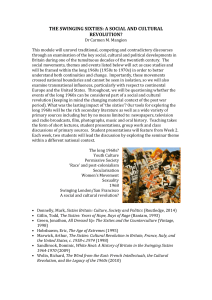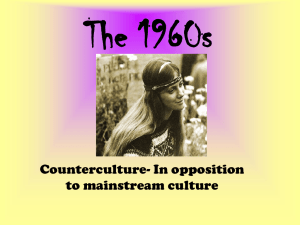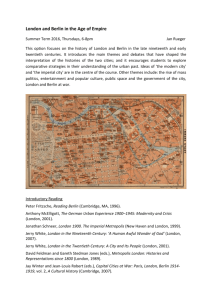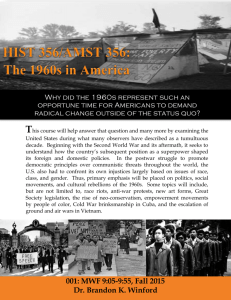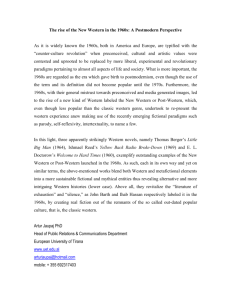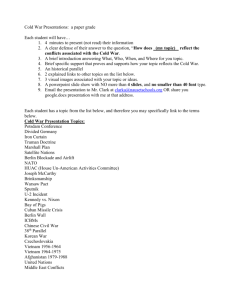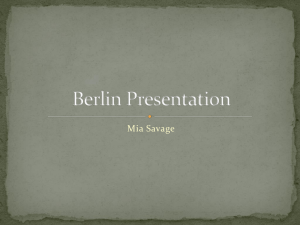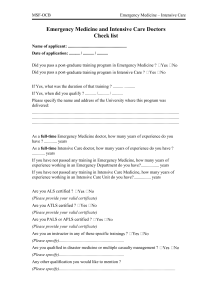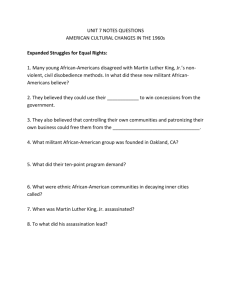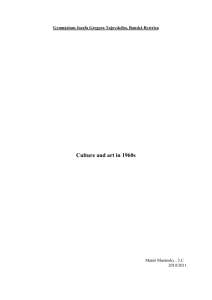Intensive Program: Europe and the US in the 1960s - John
advertisement
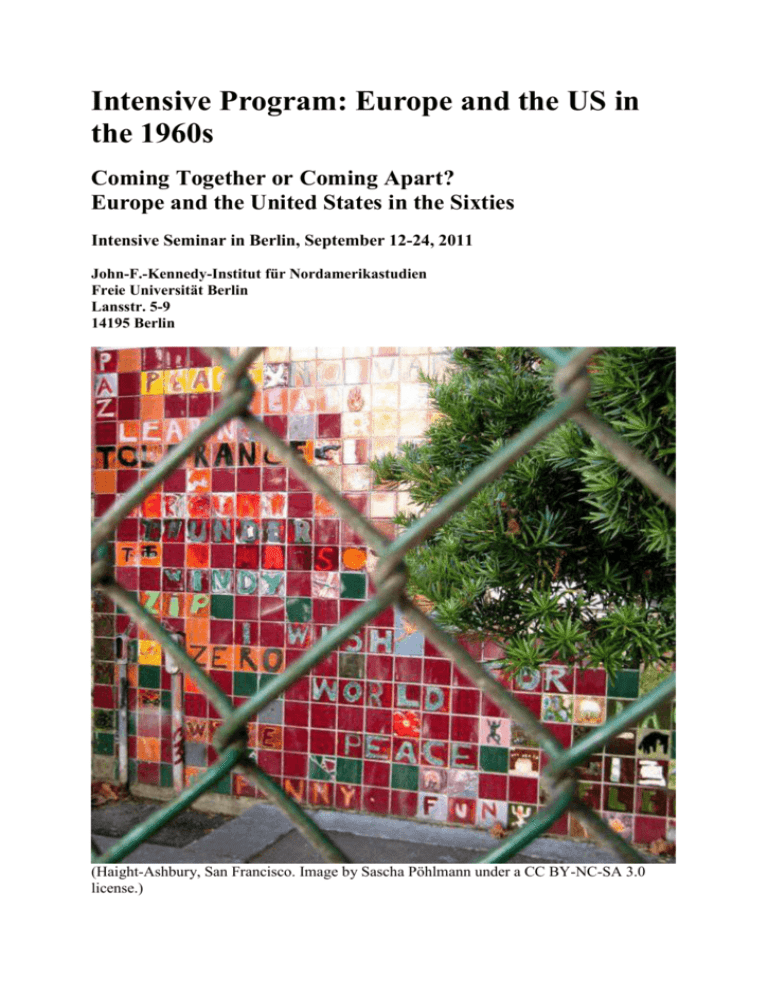
Intensive Program: Europe and the US in the 1960s Coming Together or Coming Apart? Europe and the United States in the Sixties Intensive Seminar in Berlin, September 12-24, 2011 John-F.-Kennedy-Institut für Nordamerikastudien Freie Universität Berlin Lansstr. 5-9 14195 Berlin (Haight-Ashbury, San Francisco. Image by Sascha Pöhlmann under a CC BY-NC-SA 3.0 license.) The 1960s are well known as one of the most eventful and turbulent decades in the history of the United States and Europe. In this two-week intensive seminar we want to engage in a comparative analysis of the different social, cultural and political dynamics of the Sixties not only within different countries in Europe and in the USA, but also regarding transnational and transatlantic political relationships as well as cultural developments. Lecturers and students from the fields of history, political science, literature, art, and cultural studies from Germany, France, Great Britain, Denmark, Italy, and Poland will explore the most important social protest movements as well as literary, cultural, and political developments of this decade together. Among these will be, for example, the black civil rights movement, the women’s rights movement and the anti-war movement, music and film, the Cold War, the rise of postmodernism in literature and the impact of new information technologies. Based on an in-depth interdisciplinary discussion and analysis of primary and secondary sources the goal will be to come to a deeper understanding of the intercultural confluences of this era and the effects they had on a national and global level, especially regarding the interconnectedness of many social and cultural movements, and the transnational collaboration of pro- and anti-government groups based in different European countries and the United States. This Intensive Program is part of an EU project to promote international academic cooperation. The course will count as an advanced level (3rd year) BA-seminar or as a graduate seminar (MA-level) with 15 ECTS credits. It is fully funded by the EU and the grant we have been awarded will cover most of the expenses for travel, room and board of all participating students and faculty. If you are interested in participating in this course, you need to hand in your application (including a one-page CV and a transcript of records (Scheinliste mit Noten)) via mail or hard copy by July 1, 2011. For further information please contact the executive administrative assistant, Claudia Agne (M.A.): claudia.agne@lrz.uni-muenchen.de (Phone: 0049 89 2180 6298) Project coordinator: Britta Waldschmidt-Nelson (room: 202, office hours: Wed. 12-1 p.m., email: waldschmidt-nelson@lmu.de). Survey of IP Session Contents The following is a list of all session titles and teachers of the intensive program as well as a survey of the content of each individual session as planned by its teacher, including topics for student presentations, reading assignments and a list with suggestions for further reading. This information is also available for download as a PDF file. 1. 'Eyes on the Prize': The Struggle for Black Equality and Social Justice in the United States and in Germany, 1960-1972 (Britta Waldschmidt-Nelson, Munich) 2. The Transatlantic Women's Movement: Cultural and Literary Perspectives (Clara Juncker, Odense) 2 3. The Summer of Love and Protest: European and American Youth Culture in the 1960s (Russell Duncan, Copenhagen) 4. Fiction in the Sixties and the Notion of Change: American and European Concepts of Postmodernism (Tomasz Basiuk, Warsaw) 5. The Idea of Europe in US Foreign Policy, 1961-1973 (Duccio Basosi, Venice) 6. Lessons of Vietnam and Military Reform (Mark Meigs, Paris) 7. 1960s Documentary Film: Perceptions of the Vietnam War in the U.S. and in Germany (Michael Hoenisch, Berlin) 8. Information, Communication, and Control – Cybernetics and the Rise of the Information Society (Cristina Iuli, Vercelli) 9. Robert Frost's Negotiations with Khrushchev on the Future of West Berlin: The Poetics of Containment and Transgression (Grzegorz Kosc, Warsaw) 10. American 'Public Diplomacy' and Communist Propaganda in Poland during the 1960s (Ewa Hauser, Warsaw) 11. The Paradox of Re-Colonization: The European Invasion of American Popular Music, 1961-1969 (Andrea Carosso, Torino) 12. Cultural Memory as a Tale of Three Bridges: Pont Saint-Michel, Paris, 1961, Trefechan Bridge, Aberystwyth, Wales, 1963, and the Edmund Pettus Bridge, Selma, Alabama, 1965 (Sharon Monteith, Nottingham) Biographical information Biographical information on the participating teachers of the IP and their subject-relevant publications is available for download here. 3 This project has been funded with support from the European Commission. This communication reflects the views only of the author, and the Commission cannot be held responsible for any use which may be made of the information contained therein. Thank you for the financial and logistical support: Contact Participants Faculty Students Reading assignments Program Predeparture information Presentation handouts Final papers 4
